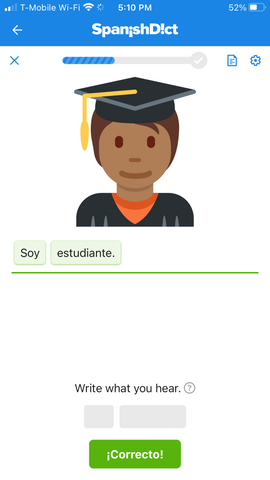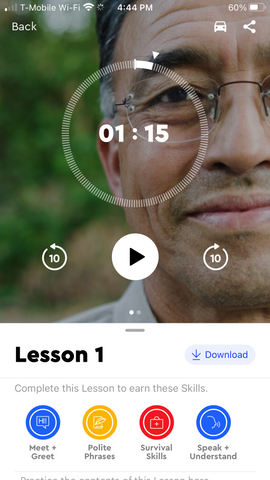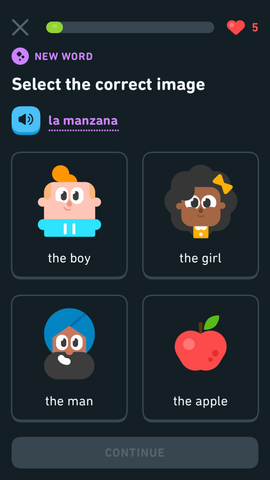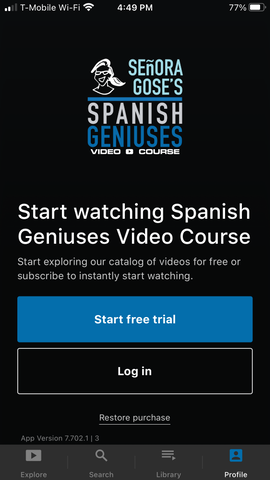I have been living, teaching classes, and homeschooling in the same Texas community for 21 years. We've moved a couple of times, but I'm blessed to say that the ladies who had to clean up the leaky diaper from my middlest (she was the baby at the time) when she was walking through their homeschool store at 10 months old are still in my circle now - I asked them toddler and reading advice back then, and now I get to ask preparatory college questions and adult children expectations, while we finish up with our last two students in their high school years.
I've been a lot of "people" during those two decades; I've worn a lot of hats. I've taught literally thousands of students in my classes: Spanish (of course - from age three!), to public speaking, apologetics, entrepreneurship, career paths, interpersonal communication, and even psychology classes. One thing for sure hasn't changed, though. I always have an opinion. If I don't have one, I don't typically just borrow one from a nearby friend, I research it and make some decisions.
** Strong opinions ahead **
Whether to use a language learning app is something worth having an opinion about! In general, I recommend against it. I'm fairly anti-screens when learning. There are GREAT tools in the screen world, but because they (screens, phones, computers, tablets) are SO prevalent, and super detrimental to our brain health, check it out on your own you can google it!) I choose a paper back, hard back textbook, notebook, flash cards and ANYthing we can put our hands on to be the core spine of our school time. After last month's ice storm, complete with internet and electricity outage, this habit proved very effective - as we could accomplish every bit of the kids' school work without electricity, except typing practice.
Ok! Here are the most popular Spanish apps in my homeschooling circles. I gave my own star system. 5 stars is reserved for NO app use, so the highest score an app can get in this system is 4 stars. :-) I do think an app is fun as a supplement and a game. Just not as a main teaching source. But here you go. If you want apps - here they are!
Please note: NONE of these will function well as "Spanish Curriculum" - they are good supplemental vocabulary practice and a fun way to reinforce learning. But none of these would be considered a full curriculum. (They lack full stories, reading, full conversations, grammatical understanding, culture, and writing.)
~~~
SpanishDict - ⭐️⭐️⭐️⭐️
This is my favorite online resource for my students, and the app is also my favorite of the four I decided to weigh in on. It not only is great to give translations and definitions, grammar, idioms, regionalisms and correct audio pronunciation. It's 100% free, and has the options of doing lessons. I like that the audio is useful, immediately, and broken down easily. There are icons rather than photos, which is a detriment, but the cartoons aren't distracting of silly, and I think the activities are actually pretty useful for learning! Here are some of the screen shots from the free version:
+ Listen to the sentence, tap the words in the correct order.
+ Useful phrases and questions in the VERY first lesson.
+ Conversations between different voices and accents.
+ Short lessons.
- No photos, just icons and digital art.



~~~
Babbel ⭐️⭐️⭐️
Babbel has a REALLY aggressive marketing approach and is the actual private sector answer to Rosetta Stone (did you know it was originally designed for the military?) The audio is great, but it is beginning with just one word at a time. Not as useful as complete sentences that get broken down. The MAIN great part is that there are PHOTOS which is WAY better for the language learning mind than cartoons. Interacting with the real world in as REAL a way as possible is important in learning a language. Here are some screen shots. The building the word one seemed the silliest to me.
+ Sentences, when used, are useful ones!
+ Photos are excellent for helping with memory.
+ Audio is clear, though super short at the beginning.
- Spelling the words should not be in in the first lesson



~~~
Pimsleur ⭐️⭐️
Pimsleur has a TON of great resources. I love the audio, and the method is REALLY REALLY good if you're an audial learner. The thing is, only about 15% of people are actually audial learners, and it's SUPER rare to communicate in a second language with no visual input to go along with it. You have a setting or event, a location, a human, their face, gesturing, etc that helps with moving sounds into longterm memory and making the impressions and communication stick. This app doesn't have that. Just audio and reading. I was sad.
+ The audio is crisp and clear.
+ The free lesson has a LOT to it!
+ There's an entire conversation at the beginning, but I think that is too much for a beginner.
- The lessons are longer than the other apps. I got one minute in and was looking around for some more engagement - and I'm not a hyper active youth...
+There are a lot of interesting activities, but you can tell this is for adult learners.



Duolingo ⭐️
This is the most popular app - also completely free. Lessons are quick, engaging, and totally game like! Which is the main reason I think people like it. It has a TON of movement and lots of sassy icons that move and shake every time you do something - or even if you don't, so it keeps the student engaged. The audio is crisp and clear. It starts with nouns, but it's a little boring - man, woman, girl, boy. I am not sure why that would be the first nouns that are given. That's totally okay - more words = better. The BIGGEST detriment (outside of non-realistic cartoons, and not useful words to keep you going) is the subversive promotion of anti-biblical world views. They talk about it proudly here.
So, even though it is free, fun, easy, and maybe even a little effective - has some steps to learning, the influence they are trying to work into their language learning just isn't ok with me or my family. Stay vigilant, my friends! The positives simply do not outweigh that BIG negative, and they have stated as part of their business goals to normalize sinful, immoral lifestyles.



#dailyspanish #homeschoolspanish #spanishapp #freespanishlessons #spanishlessons


I hope you’ll check out studycat too, it’s very safe and kidfriendly for language learning!
My 10 year old was doing Babble- just a heads up it got even more subversive and against the Bible than Duolingo which is why we dropped it. So sad app creators think this is necessary for learning a language
Hey Ashley – No, it only gets one star because I can NOT recommend it. This is my view point on my blog. So I get to give the stars. ;-)
Mainly – it’s subversive. And, as I stated as well, no one actually learns how to speak – the cartoons are not helpful, the nouns they chose to begin with are not commonly used words while speaking, and the phrases are boring. But then once you get a streak, you’re “hooked” they allow you to see their agenda. I think when the world is less than 3% of a certain type of person, then less than 3% of the teaching should allow that portion in. It’s not helpful, distracting, and out of place. One star, max. I literally know zero people who have learned to be able to speak Spanish from using that app.
So Duolingo as a Spanish learning app is a good app but because it’s not from a “biblical” view point (though I completely disagree with this from a biblical stand point) it only gets a 1 star. Am I understanding that correctly? If it didn’t have character that identify as LGBT+ then what rating would you give it? I’m genuinely curious. This is the app we use should I would love a rating based on the Spanish teaching not the spiritual teaching according to what you deem acceptable for God. I’m not trying to be snarky just honestly asking about the Spanish content
Yes! Thank you for replaying – you can skip that page and it’ll stay free. :-)